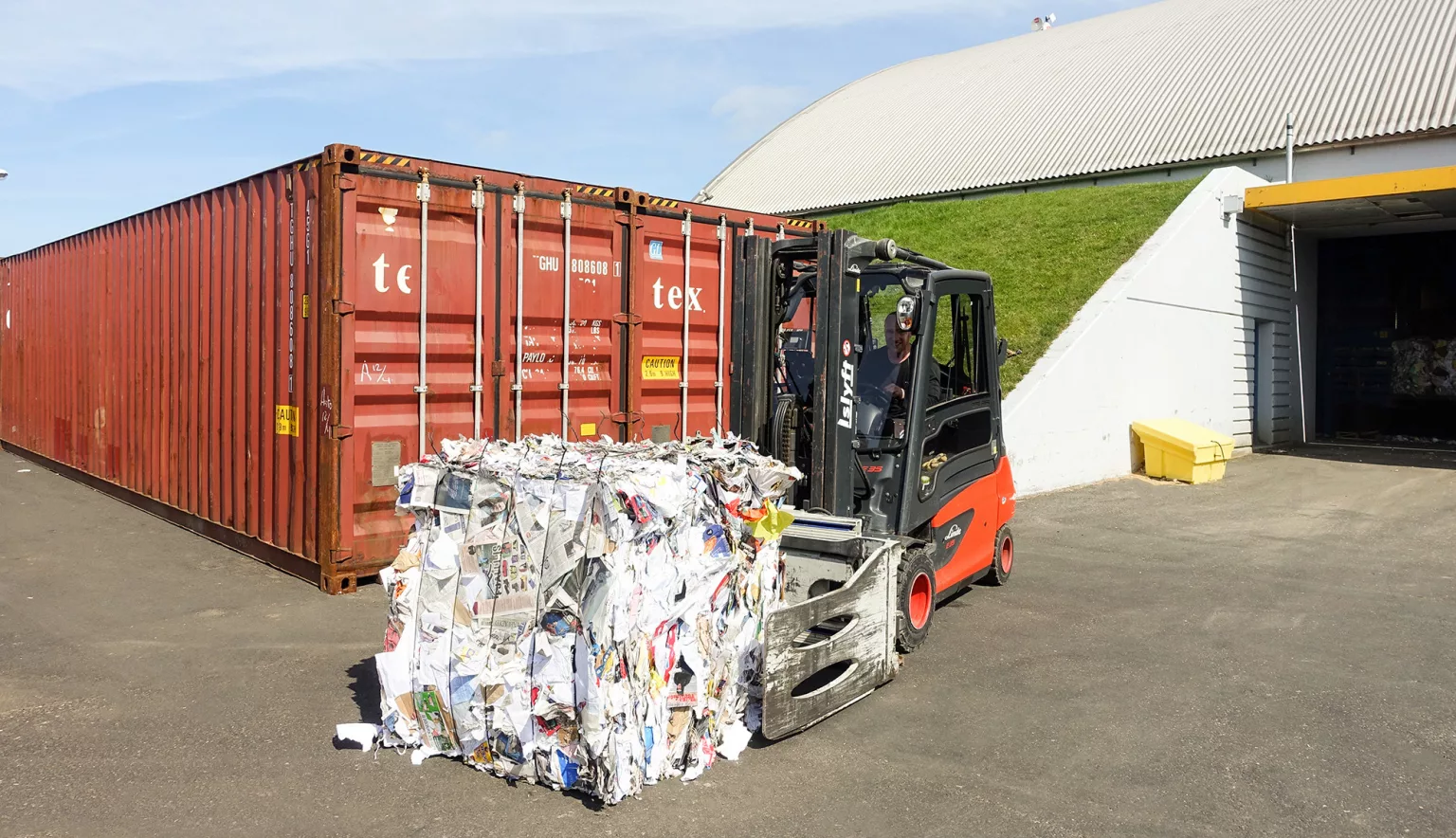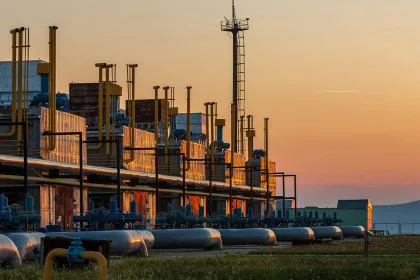With sustainability high on the global agenda, Iceland’s SORPA has emerged as an exemplary figurehead of waste management with its innovative solutions.
INTRODUCTION
Confronting international issues has become a major trend of the 21st century, and the growth of global waste is one that has warranted increasing urgency and attention in recent years.
Figures from the World Bank forecast that waste generation will rise 70 percent on current levels to 3.4 billion tonnes by 2050, driven by rapid urbanisation and growing populations.
As a result, the need for proper management has become essential in building sustainable communities – a necessity that is being implemented effectively in Iceland by SORPA.
Founded in 1989 as a non-profit municipality-owned firm, SORPA handles the waste for not only Reykjavik city but six key districts around the capital area, standing as a national proponent for the promotion of sustainable living.
Serving this region, the organisation runs its operations from 10 different locations; a receiving station, a charity shop for used household goods, its main office, a landfill site and six different strategically located recycling centres.
“We also operate around 85 drop-off centres for recyclables,” explains Björn Halldórsson, General Manager of the organisation. “When combined, this network allows us to provide a broad range of services, receiving, handling, recycling and disposing of all different kinds of waste.”
With these facilities spanning much of the country’s most populated areas, SORPA caters to the waste management demands of roughly 70 percent of the Icelandic population, encompassing more than 100,000 homes.
ADVOCATING EFFICIENCY
Before anything else, SORPA is driven to ensure that such services are provided at the lowest possible cost, both to the environment and financially.
Working to achieve unrivalled levels of social responsibility in this way, the organisation has continued to face and overcome all kinds of waste management challenges, remaining reliable and reputable throughout its illustrious history.
In particular, the firm’s emphasis on flexibility and efficiency has been crucial to its success, as Halldórsson explains: “Good planning, the implementation of an effective quality control system and our esteemed workforce have collectively been key to our continued success.
“We continually analyse our existing operations in the aim of expanding our capacity, something that was introduced to great effect with one of our recent restructuring processes.
“Whilst almost all of the heavy equipment we use is owned and operated by contractors, we recognise in certain instances that it can be more economical to manage these ourselves – something we have begun to do in our receiving station.”
Taking this approach, SORPA has become the owner of industry-centric heavy equipment that runs solely on electricity – a first for Iceland.
ENABLING TRANSFORMATION
Having become synonymous with progression since its inception, SORPA aims to continue expanding and promoting sustainable waste management throughout the entire country.
Standing as a prime example of these efforts, the firm is currently building a combined biogas and composting plant that will allow it to handle greater amounts of municipal waste, primarily waste generated from households. Moreover, the facility will produce fertilisers and compost that can be used to fight erosion in Iceland, advancing biodiversity, bolstering nutrition recycling and improving air quality, amongst other things.
Once complete, the facility will have the equivalent impact in CO2 emission terms as of removing 36,000 vehicles off the country’s roads.
“Although this is a flagship project, it is just one of a number of initiatives that we’re pursuing at the moment,” Halldórsson adds. “We’re also looking into the possibility of producing diesel from comingled plastic waste.”
Championing innovation in waste management is a role that SORPA has become familiar with. The organisation has been looking for new ways to tackle industry-centric challenges in the capital area for decades, evident in its production of methane from landfill gas – an initiative it has been pursuing since the year 2000.
“This was a pilot project for not only Iceland but the world, and SORPA has made good progress in controlling the production,” Halldórsson explains.
“Biogas is a good alternative fuel for vehicles and is in fact the only fuel in Iceland certified by the Nordic Swan, the official ecolabel of Nordic nations. Today, all waste trucks servicing Reykjavik Capital run on upgraded landfill gas, plus two city buses.
“Further, we’re currently in discussions with a local bus company in regard to potentially expanding the use of methane as a fuel for public transport buses, a solution that could be ideally aligned with our new biogas facility.”
Exploring a multitude of ways that waste can be turned into and utilised as energy, SORPA continues to turn curiosity from concept into reality, revolutionising Iceland’s waste management practices.
FACILITATING THE FUTURE
Fundamentally, SORPA’s acclaimed approach has been crucial in allowing Iceland to better address the challenges posed by rising waste, both raising awareness and providing effective solutions.
“SORPA’s contribution is vital when it comes to reducing the environmental impact of waste in Iceland,” Halldórsson adds. “Working in this privileged position, we ensure that we play a key role in helping to achieve almost all of the country’s sustainability goals.”
In recent times, Iceland has begun to experience tourism prosperity. Between 2016 and 2017 alone, visitor numbers rose by 24.2 percent, up from 1.8 million to 2.2 million.
With this in mind, achieving these goals will be highly dependent on SORPA’s ability to accommodate all types of waste in a financially sound and environmentally friendly way moving forward.
“Predictions are that this tourism boom will continue making the future of waste handling a challenge for all involved,” Halldórsson says, “a challenge that we will continue to work to overcome.”
SORPA: SUSTAINABILITY GOALS
“Iceland ensures that it is compliant with the United Nations’ Sustainability Goals, and the Icelandic government has put increasing emphasis on issues specially related to Iceland,” Halldórsson explains.
“This includes educating all people on sustainability, making sure water resources are protected from waste pollution, providing environmentally friendly fuel, enabling the betterment of waste management and air quality, and increasing biodiversity.
“Every year we welcome around 2,500 students of all ages to visit SORPA to teach them about waste management. No other institution or company in Iceland offers such services free of charge to national schools or institutions.”





























